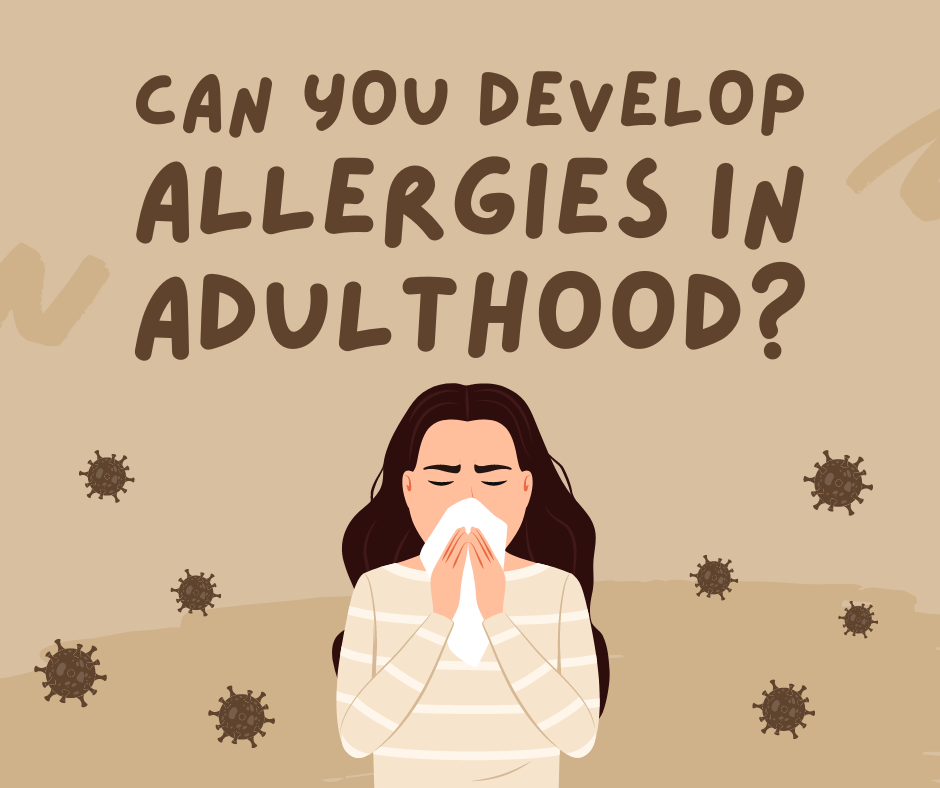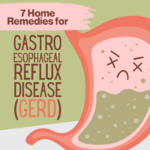

Many people suffer from allergies, but did you know that people who have never had allergies in their childhood can suddenly develop them in adulthood? Let’s look at the facts below.
How Do Allergies Work?
You can think of allergies as a sort of overreaction on the part of your immune system. For some reason, they view certain allergens as foreign bodies that need to be killed. They then create antibodies called immunoglobin that, depending on the nature of your allergy, line your airways (i.e., nose, mouth, throat, airways), gastrointestinal tract, or skin.
When these antibodies come in contact with the allergens, your body becomes inflamed in response. They release a chemical called histamines that cause mucus to form in your airways, dilate your blood vessels, skin to itch and form hives, and the abdomen to hurt. This is done to fight off any damage caused by the allergens, even when the allergens are completely harmless!
When Do Allergies Come Up?
Allergies typically start showing up in childhood. Indeed, around one in five children will have some type of allergy, which is why monitoring your children’s health is very important. As parents or guardians, you need to look after your child’s health, especially if signs of something unusual are happening. Your children might not be the best at articulating how they’re feeling, and it’s your responsibility to share their health issues with their primary care providers.
As they age, however, allergies may or may not disappear. Sometimes, your child will eventually grow resistant to their allergies, and come the 20s or 30s, they might stop reacting to them!
Adversely, some people develop allergies in adulthood that they didn’t have as children, which we’ll be talking about below.
Why Can You Get Allergies in Adulthood?
Nobody really knows why this happens, but this is fairly common, and researchers estimate that half of the adults with allergies developed their allergies in adulthood. Supposed triggers for adulthood allergies include the following:
Immunocompromised Health
When your immune system has been compromised, such as when you’re pregnant, sick, or have a condition that attacks your immune system, you’re more prone to developing allergies. Your immune system simply does not have the resources to fight back and determine if something is harmful or not. This then increases your chances of developing allergies as an adult.
Little to No Exposure
This is kind of a no-brainer. You can’t have an allergic reaction if there are no allergens around you! But that doesn’t mean you aren’t allergic.
For example, you’re relocating to an area with plants and trees that aren’t present in the area you just came from. You then start having allergic reactions to them as an adult simply because you weren’t exposed to them as a child. The same applies to foods and animals as well.
Existing Allergies
Some health experts believe that existing allergies can make you develop more allergies as you get older. For example, if you have eczema, which is a type of skin allergy, you may develop other allergic reactions such as sneezing and wheezing later on in life. It appears having allergies makes you prone to having more allergies.
What are the Most Common Adulthood Allergies?
Unsurprisingly, many adulthood allergies are the same as allergies children suffer from. They can be divided into three subcategories:
Seasonal Allergies
These are the most common allergies adults develop. Commonly mistaken as a regular cold or flu, if you’re only getting these reactions at certain times of the year when pollen and plant allergens are abundant, you might have developed a seasonal allergy. They typically show up during the spring or fall. Common symptoms include an itchy throat, sneezing, and a stuffy nose.
Pet Allergies
Hairs, furs, skin flakes, and traces of saliva and urine from your beloved pets can turn into allergies. This happens with either constant exposure to these elements, or suddenly being exposed to them, such as when you get a dog as an adult when you didn’t have one as a child. They can cause reactions in both the skin and respiratory system.
Food Allergies
Did you know around 11% of the American population has some form of food allergy? Common food allergens include nuts (e.g., peanuts, almonds, cashews), seafood (e.g., fish, shrimps, crabs), soy (e.g., tofu, soy milk, miso), and wheat (e.g., most breads, cereals, pastas). If you have an allergic reaction to food, you can suffer from all three: skin, respiratory system, and gastrointestinal tract!
How Do You Treat Adulthood Allergies?
There are many ways to deal with allergies.
Some prefer to just deal with it altogether. They have a container of antihistamines nearby, and you can simply pop one in your mouth whenever you have a mild allergic reaction. Some people also have inhalers or (in severe cases) an EpiPen to help stop allergic reactions or at least reduce them until medical attention comes along.
If you really want to be extra careful, you can even go to a doctor and take skin-prick tests. Here, a doctor injects several common allergens into the skin, and if there’s a reaction, you’re likely allergic to it. You can then avoid stuff you’re allergic to or at least be prepared.
Some, however, prefer the direct approach. They take allergy shots, which gradually introduce allergens into your system and build immunity against it. In a few years, the allergies should disappear, though this is very time-consuming and costly.
On the other end of the spectrum, you also have people who just don’t do anything with their allergies. As long as the reactions are mild and not life-threatening, what’s the point of getting worried about it? This approach can also be effective as it exposes you to allergens and builds your immunity against them.

